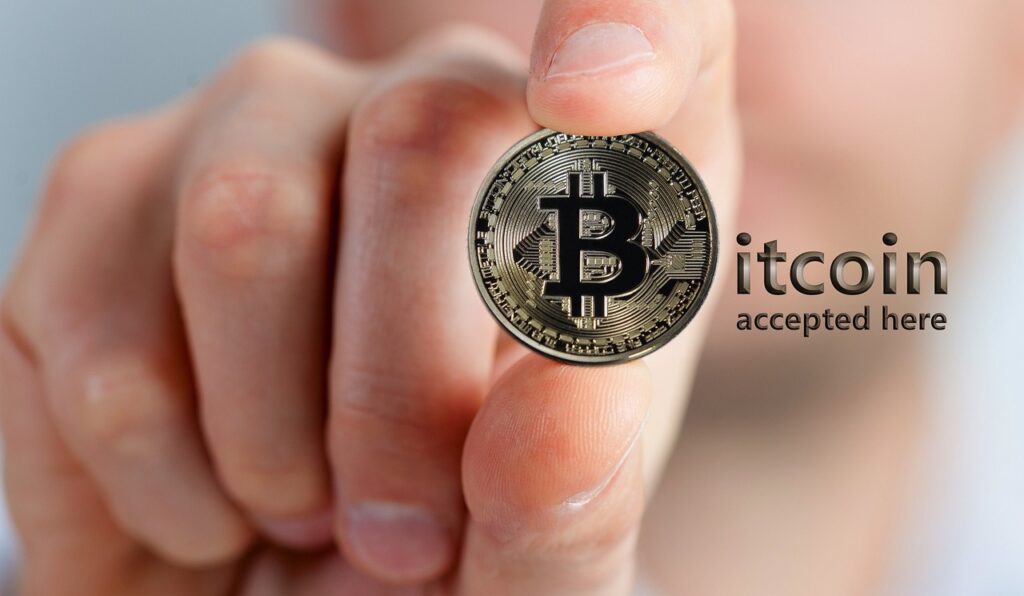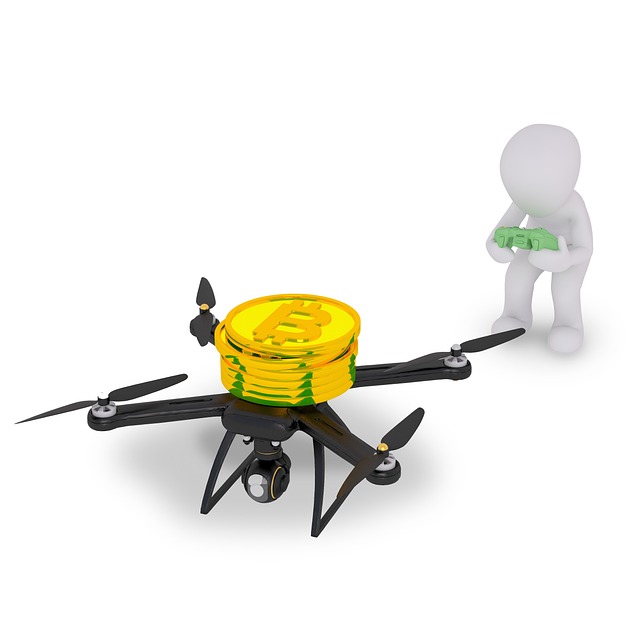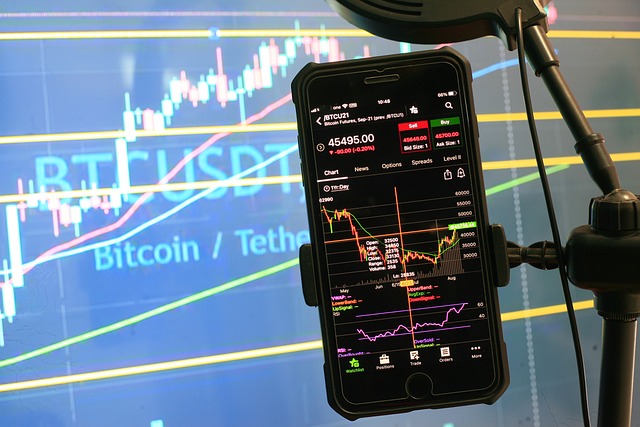Decentralized Finance Tech Trends: What’s Next in [Year]?
Decentralized Finance Tech Trends: What’s Next in [Year]?

The Rise of DeFi Platforms
DeFi, or Decentralized Finance, has been on the rise in recent years, revolutionizing the traditional financial landscape. These platforms utilize blockchain technology and smart contracts to provide users with a range of financial services, all without the need for intermediaries or centralized control. The rise of DeFi platforms has opened up new opportunities for individuals around the world to participate in the financial market and access various investment and borrowing options.
One of the key factors driving the growth of DeFi platforms is the increasing importance of smart contracts. These self-executing contracts are coded on the blockchain and automatically execute the terms and conditions specified within them. Smart contracts enable trustless transactions and eliminate the need for intermediaries, making the process faster, more efficient, and more secure. The automation and transparency provided by smart contracts have unlocked the potential for a wide range of financial products and services, including lending, borrowing, trading, and yield farming, all within the decentralized realm of DeFi platforms.
The Growing Importance of Smart Contracts
Smart contracts have quickly become a crucial element in the world of decentralized finance (DeFi). These computer programs are designed to automatically execute and enforce agreements without the need for intermediaries. By operating on blockchain technology, smart contracts offer a transparent and immutable framework for executing financial transactions, thereby enhancing security and removing the necessity for trust between parties. With the ability to be programmed with predefined conditions and self-executing capabilities, smart contracts are transforming the way financial agreements are made and upheld.
One of the key advantages of smart contracts is their efficiency in automating various processes. By using code to execute predefined actions, smart contracts eliminate the need for human intervention in tasks like verifying identities, carrying out transactions, and storing records. This not only saves time but also reduces the risks associated with human error. Additionally, smart contracts can operate 24/7, allowing for seamless and instantaneous transactions across different time zones.

The Role of Blockchain in DeFi
Blockchain technology plays a pivotal role in the development and operation of DeFi platforms. At its core, blockchain provides a decentralized and transparent infrastructure that facilitates peer-to-peer transactions without the need for intermediaries. By leveraging blockchain, DeFi platforms can ensure trust and security, removing the need for users to rely on centralized third parties such as banks or traditional financial institutions. This opens up a whole new world of possibilities, where individuals can have more control over their financial assets and participate in a global, borderless financial system.
One of the key advantages of blockchain in DeFi is its ability to enable smart contracts. These self-executing contracts are coded on the blockchain, allowing for automatic and tamper-proof execution of agreements once predefined conditions are met. Smart contracts eliminate the need for intermediaries, reducing costs and increasing efficiency in various financial activities such as lending, borrowing, or trading. Moreover, smart contracts are transparent and enforceable, ensuring that all parties involved adhere to the agreed-upon terms. With the help of blockchain and smart contracts, DeFi platforms can offer innovative financial services in a decentralized manner, disrupting traditional financial systems and democratizing access to financial services.
The Emergence of Decentralized Exchanges
Decentralized exchanges (DEXs) have rapidly emerged as a crucial component of the evolving decentralized finance (DeFi) ecosystem. Unlike their centralized counterparts, DEXs operate on blockchain technology, allowing users to trade digital assets directly with each other, sidestepping the need for intermediaries. This presents several advantages, such as increased security, privacy, and censorship resistance.
One of the key benefits of decentralized exchanges is the elimination of the need to trust a third party with custody of funds. Instead, DEXs leverage smart contracts to facilitate peer-to-peer transactions, allowing users to retain full control over their assets. By removing the risk of exchange hacks or insider manipulation, DEXs offer a more secure environment for trading. Moreover, the transparency of DEXs allows users to verify transactions on the blockchain, providing greater confidence in the integrity and fairness of the exchange. As a result, many users are gravitating towards decentralized exchanges as a means to preserve their financial sovereignty in an increasingly centralized world.
The Impact of Yield Farming on DeFi
Yield farming has quickly become one of the most talked-about trends in the world of decentralized finance (DeFi). With its eye-catching returns and relatively low barriers to entry, it has captured the attention of both seasoned investors and newcomers alike. The impact of yield farming on DeFi has been nothing short of transformative, with the potential to revolutionize financial systems and democratize access to investment opportunities.
One of the key impacts of yield farming on DeFi is the incentivization of liquidity provision. By offering attractive returns in the form of tokens or yields, DeFi platforms encourage users to deposit their assets and participate in various liquidity pools. This, in turn, serves to deepen the liquidity in the ecosystem, making it more robust and efficient. Moreover, yield farming has proven to be a powerful tool for bootstrapping new DeFi projects, as it allows them to attract liquidity and gain traction within a relatively short period. With such potential to fuel the growth of DeFi, the impact of yield farming cannot be understated.
The Promise of Decentralized Lending and Borrowing
Decentralized lending and borrowing holds immense promise in the world of decentralized finance (DeFi). With the traditional banking system loaded with cumbersome processes, high fees, and limited access, decentralized lending platforms aim to revolutionize the way individuals and businesses obtain loans. These platforms operate on the blockchain, leveraging smart contracts to create a trustless and transparent lending ecosystem.
One of the key advantages of decentralized lending and borrowing is the removal of intermediaries. In traditional lending, borrowers need to rely on banks or financial institutions to approve their loan applications, often going through lengthy approval processes and facing potential rejections. However, decentralized lending platforms eliminate the need for intermediaries, providing a direct connection between lenders and borrowers. This not only streamlines the lending process but also opens up new opportunities for individuals who may have previously been excluded from the traditional financial system. Additionally, decentralized lending platforms often offer competitive interest rates and flexible loan terms, making it an attractive option for borrowers seeking greater financial freedom.
The Potential of Decentralized Insurance
When it comes to the world of decentralized finance (DeFi), one area that holds significant potential is decentralized insurance. Traditional insurance has long been dominated by centralized entities, which can often result in limitations and inefficiencies. However, with the emergence of blockchain technology and smart contracts, decentralized insurance has the power to revolutionize the industry.
Decentralized insurance operates on the principles of transparency, trust, and peer-to-peer interaction. Instead of relying on a central authority, policyholders can directly interact with each other and manage their insurance contracts through smart contracts. This not only eliminates the need for intermediaries but also allows for more efficient claims processing and lower premiums. Additionally, with the use of blockchain technology, every transaction and policy is recorded on a decentralized ledger, ensuring transparency and reducing the risk of fraud. The potential of decentralized insurance lies in its ability to provide accessible, cost-effective, and inclusive coverage to individuals and businesses globally.
The Integration of Stablecoins in DeFi
Stablecoins, a type of cryptocurrency designed to maintain a stable value, have become an integral part of the decentralized finance (DeFi) ecosystem. These digital assets offer a reliable bridge between traditional fiat currencies and the blockchain world, allowing users to seamlessly engage in DeFi activities without the volatility typically associated with cryptocurrencies. With stablecoins, individuals and institutions can easily transfer, store, and transact value within the DeFi space, bringing a new level of stability and accessibility to the decentralized financial landscape.
One of the key advantages of integrating stablecoins into DeFi platforms is the ability to provide users with a familiar and stable means of exchange. By pegging the value of stablecoins to a more stable asset like the US dollar or another fiat currency, users can enjoy the convenience of using a digital currency while minimizing the risks of price fluctuations. This stability makes stablecoins particularly well-suited for various DeFi applications, such as decentralized lending and borrowing, decentralized exchanges, and yield farming, where users require a dependable and consistent value to participate effectively. As the DeFi industry continues to grow and mature, the integration of stablecoins is expected to play a crucial role in expanding the reach and accessibility of these innovative financial solutions.
The Challenges and Regulation of DeFi
DeFi, with its decentralized nature and innovative financial products, has garnered significant attention and adoption in recent years. However, along with its promise comes a set of challenges and the need for adequate regulation.

Moreover, the regulatory landscape surrounding DeFi is still in its infancy. As governments and regulatory bodies try to navigate this new phenomenon, issues such as adequate consumer protection and the prevention of illicit activities arise. The lack of clear guidelines and a unified approach towards DeFi regulation have led to a degree of uncertainty and caution in the industry. It remains to be seen how regulators will strike a balance between fostering innovation and ensuring the integrity and stability of the financial system.
The Future Outlook of DeFi in [Year]
Looking ahead to the future of decentralized finance (DeFi) in [Year], it is clear that this burgeoning sector will continue to thrive and evolve. With the increasing adoption of blockchain technology and the growing interest from both institutional and retail investors, the potential for DeFi to reshape traditional financial systems is immense.
One key area that is expected to see significant growth is decentralized lending and borrowing. As more individuals and businesses recognize the benefits of accessing loans and earning interest without intermediaries, decentralized lending platforms are poised to become a mainstream solution.

• Decentralized lending and borrowing will see significant growth
• More individuals and businesses will recognize the benefits of accessing loans and earning interest without intermediaries
• Decentralized lending platforms are poised to become a mainstream solution
• This could lead to a more inclusive financial system, allowing individuals with limited access to traditional banking services to participate in lending activities and access capital for their financial goals
• The integration of stablecoins in DeFi is expected to create more stability within the ecosystem
• Stablecoins can reduce the volatility that is inherent in cryptocurrencies, making them a more reliable medium of exchange
What is DeFi?
DeFi, short for Decentralized Finance, refers to a digital ecosystem built on blockchain technology that aims to provide traditional financial services in a decentralized manner.
What are DeFi platforms?
DeFi platforms are online platforms that allow users to access various decentralized financial services, such as lending, borrowing, trading, and investing, without the need for intermediaries like banks.
Why are smart contracts important in DeFi?
Smart contracts are self-executing contracts with predefined rules encoded on a blockchain. They play a crucial role in DeFi by automating the execution of financial transactions and eliminating the need for intermediaries, making the system more efficient and transparent.
How does blockchain technology contribute to DeFi?
Blockchain technology provides the underlying infrastructure for DeFi by ensuring the security, immutability, and transparency of financial transactions. It enables trustless, peer-to-peer interactions and eliminates the need for centralized authorities.
What are decentralized exchanges?
Decentralized exchanges (DEXs) are platforms that facilitate the direct peer-to-peer trading of cryptocurrencies without the need for intermediaries or centralized control. They allow users to retain control over their funds and provide greater privacy.
What is yield farming and how does it impact DeFi?
Yield farming involves staking or lending cryptocurrencies on DeFi platforms to earn additional rewards or interest. It has become popular in DeFi as it incentivizes users to participate in different protocols, driving liquidity and growth in the ecosystem.
How does decentralized lending and borrowing work in DeFi?
Decentralized lending and borrowing platforms allow users to lend their cryptocurrencies and earn interest or borrow assets by collateralizing their own cryptocurrencies. It provides individuals and businesses with access to capital without relying on traditional financial institutions.
What is decentralized insurance in DeFi?
Decentralized insurance in DeFi aims to replace traditional insurance providers by offering coverage through smart contracts. It allows users to protect their assets and mitigate risks, with claims and payouts automatically executed based on predefined conditions.
What is the role of stablecoins in DeFi?
Stablecoins, which are cryptocurrencies pegged to a stable asset like a fiat currency, play a significant role in DeFi. They provide stability and a familiar value for users, enabling seamless transactions and reducing exposure to the volatility of other cryptocurrencies.
What are the challenges and regulations surrounding DeFi?
DeFi currently faces challenges related to scalability, security, and regulatory frameworks. As the industry evolves, governments and regulatory bodies are working to establish guidelines to protect users and prevent potential risks associated with DeFi.
What does the future hold for DeFi in [Year]?
The future outlook for DeFi in [Year] looks promising, with continued growth in DeFi platforms, increased adoption of smart contracts and blockchain technology, and the emergence of new decentralized financial services. However, regulatory developments and technological advancements will also shape the path ahead for DeFi.
Todays Featured Product:
Buy, exchange and grow your crypto securely with a Ledger hardware wallet, combined with the Ledger Live app. It’s never been easier to keep your crypto safe and accessible. Buy direct from Ledger.com and get todays Special Offers Here.




